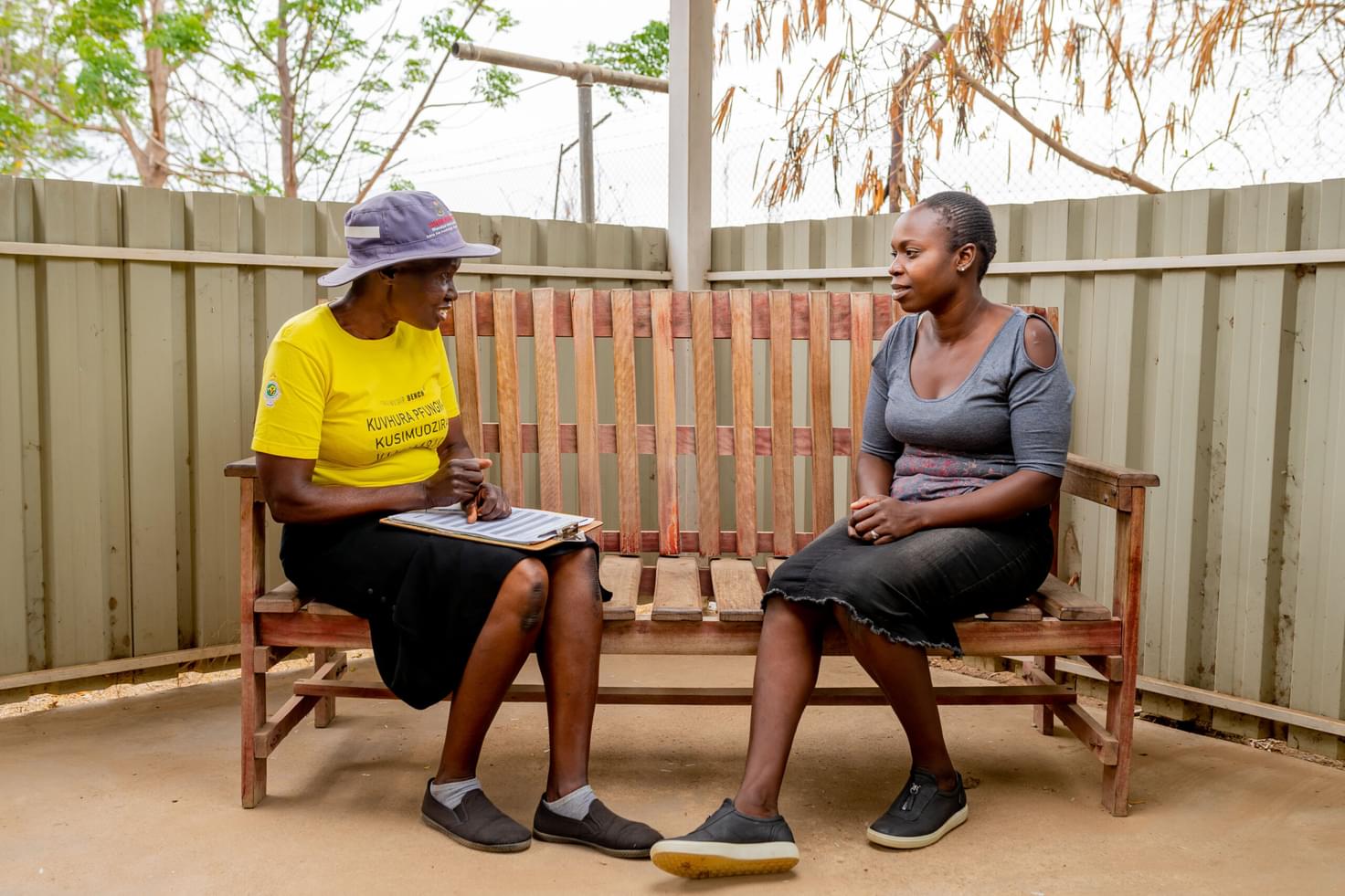
Words by Tess Becker
Not everyone has a place to turn to for mental health aid. In Zimbabwe, the Friendship Bench is working to change that by providing a community approach to mental health treatment that everyone can have access to.
The founder of the Friendship Bench, Prof. Dixon Chibanda, wanted to create safe spaces and a sense of belonging in communities to improve mental wellbeing and enhance the quality of life. They’ve even worked in psychological research along with their work, including a study published in the Journal of American Medical Association.
After losing a client to suicide, Professor Chibanda wanted to help form a stronger bedrock of support in his community.
Charmaine Chitiyo, an implementation manager for Friendship Bench, tells Smiley News: “He felt that this is something that needed to be done.
"Even if he helps people at a facility level, he feels safe that when he goes back to the community, there's somebody there to continuously see that people are okay and they can talk to someone so they don't think about taking their life."
In a culture where talking about mental health isn’t always the most acceptable thing, the Friendship Bench wanted to offer a platform where people would be safe to talk about how they feel.
“If we look at the pathway as a country and even our culture, speaking out is not something that is common,” says Charmaine. “People are afraid, often, to talk about their problems. So we want people to see the space as a place where people can feel they can talk.”
The way it works is as a community meeting place not dissimilar from group therapy, where people can go to have their concerns and feelings heard while also hearing and sharing with other people going through things.
They want people to be able to feel safe, secure, and heard so they can hopefully work through their problems to some degree and destigmatize mental health in their community.
“We want people to feel like they can come to Friendship Bench and be who they are, say what they want to say, express themselves cry, laugh about some of the things that are happening to them, and be able to really go as far as possible talk about their problems,” Charmaine says.
Find out more about the Friendship Bench and its impact.
This article aligns with the UN SDG Good Health and Wellbeing.